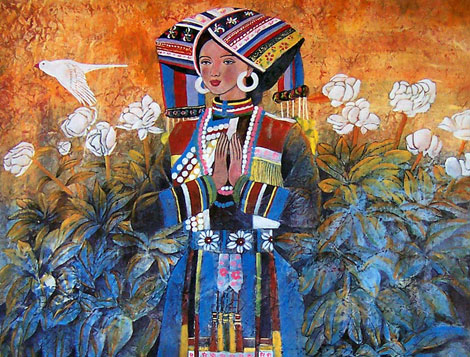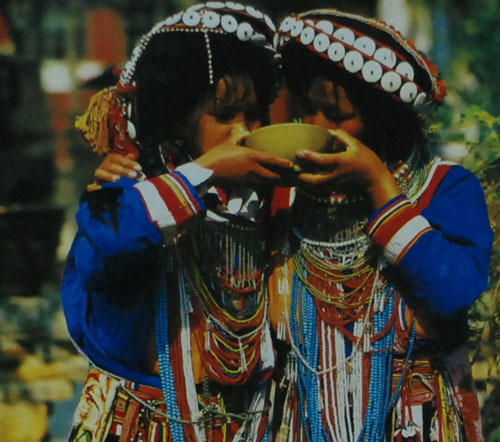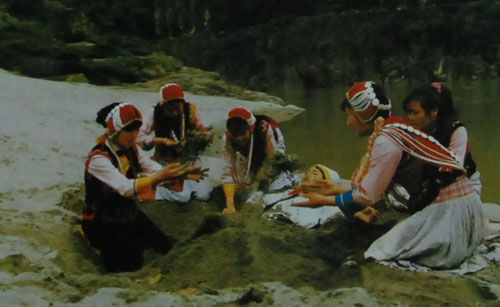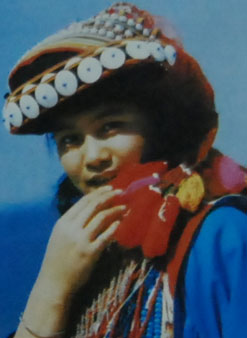
The Lisu population is 574.8S6. Most of the Lisus now live in Bijiang, Fugong, Gongshan and Lushui counties of Nujiang Lisu Autonomous Prefecture, and north of Yunnan Province. The rest live together with the Hans, Bais, Yis and Naxis in the neighboring Tengchong and the adjoining area to Sichuan Province.

Sharing a bowl of wine side by side with intimates is a local custom.
In the eighth century, ancestors of the Lisus inhabited the banks of the Jinsha River. In the mid-16th century, they moved to the Nujiang River Valley. Between the 17th to 18th centuries, a great number of Lisu people migrated to Dehong, Lincang and Gengma of Yunnan Province. Some made their homes in Laiquan and Dayao in the southern part of the Jinsha River Valley.

Burying her boyfriend with river sand is a popular courting game among the Lisu youths.
The Lisu language belongs to the Tibeto-Burman group of the Sino-Tibetan family. Its written form was not quite complete. After 19S7, Romanization writing became prevalent.

A Lisu woman.
The Lisu villages are distributed in the two north-to-south gorges eroded by the swift currents of the Nujiang and Lancang rivers. This area has abundant mineral and hydropower resources and produces rare fur and mountain products.
The Lisu people are noted for their frank and hospitable personality. Their festivals resemble those of the neighboring Hans, Bais and Nanxis. The New Year's Day is the first day of a lunar year. The Torch and Harvest festivals fall in luna and October respectively.





